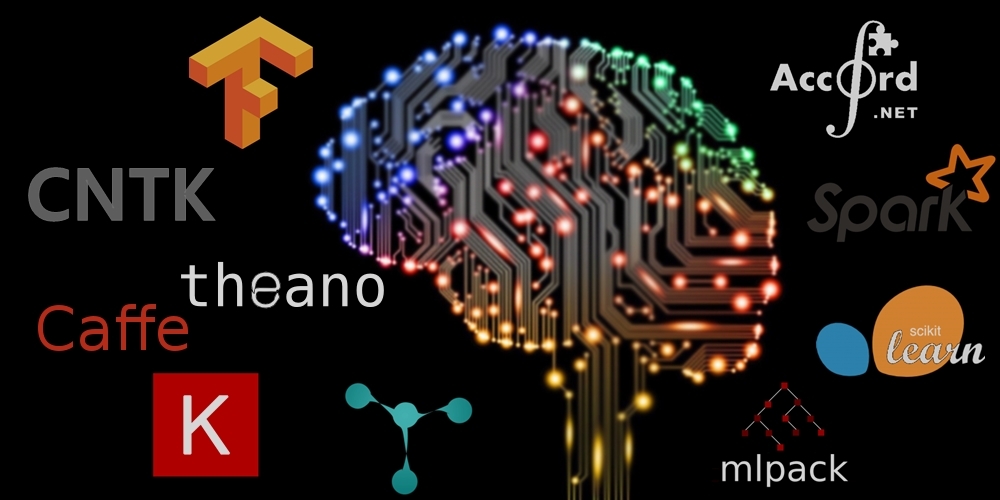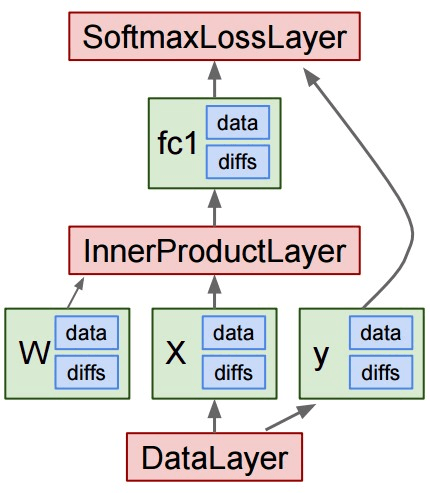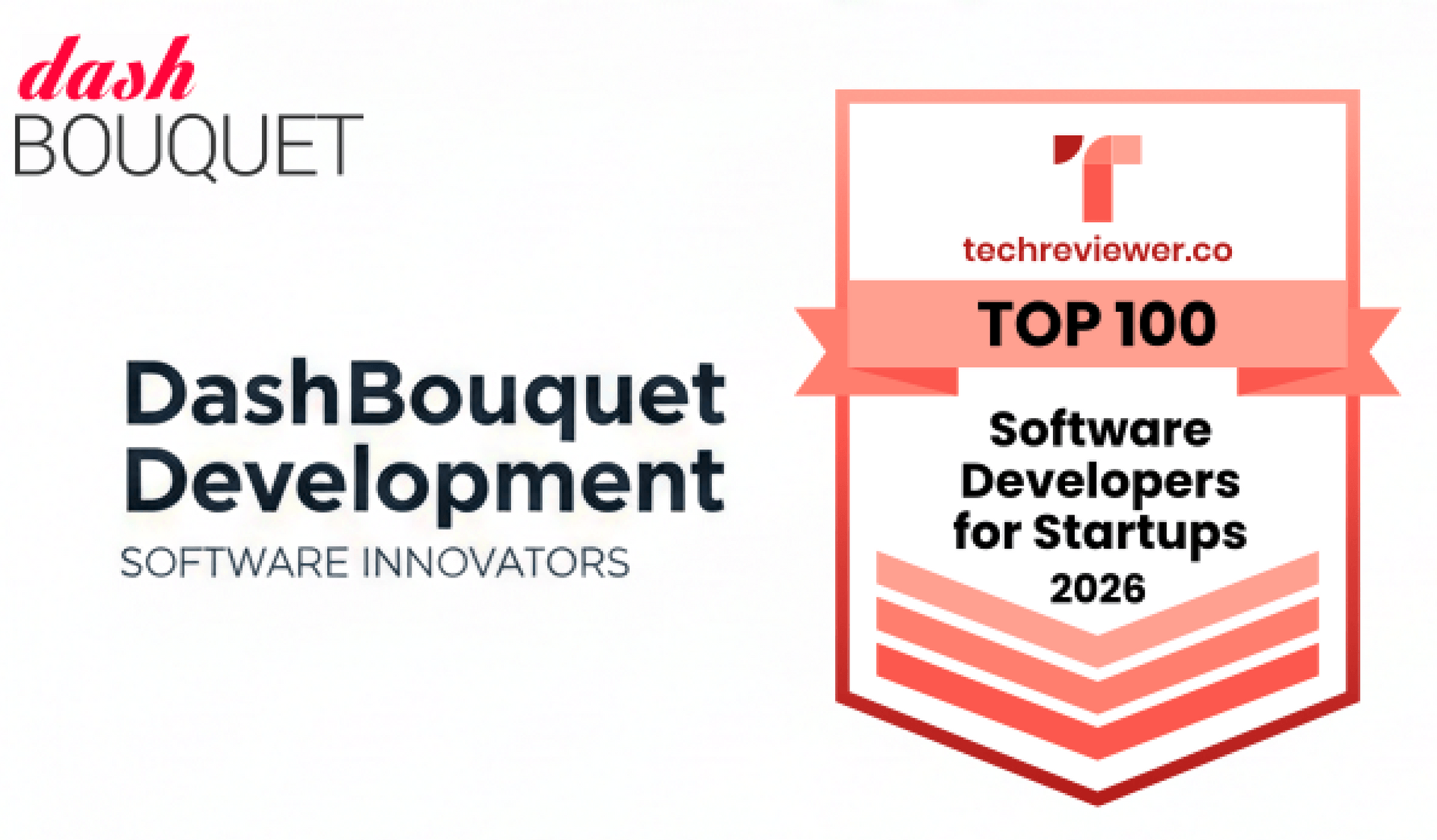Artificial Intelligence has existed for a long time. However, it has become a buzzword in recent years due to the huge improvements in this field.
AI used to be known as a field for total nerds and geniuses, but due to the development of various libraries and frameworks, it has become a friendlier IT field and has lots of people going into it.
In this article, we would be looking at top quality libraries that are used for Artificial Intelligence, their pros, cons and some of their features also.
Let‘s dive in, and explore the world of these AI libraries.
TensorFlow
"Computation using data flow graphs for scalable machine learning"
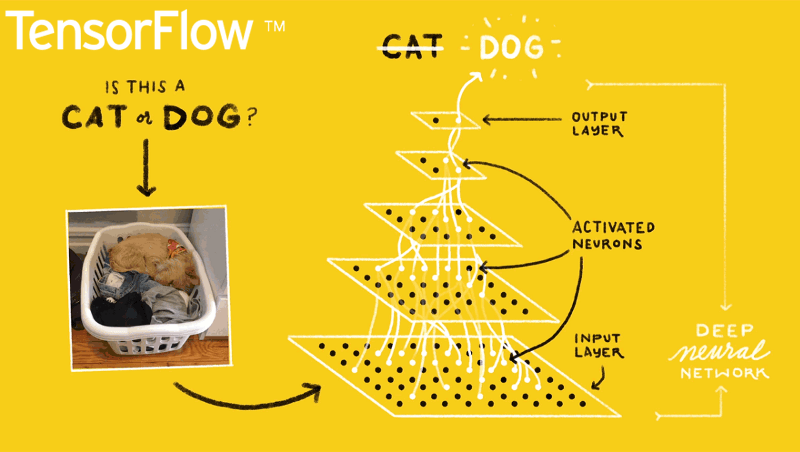 Language: C++
Language: C++
84 725 ★
When getting into AI, one of the first frameworks you would get to hear about is Google's TensorFlow.
TensorFlow is an open source software for carrying out numerical computations using data flow graphs. This lovely framework is known for its architecture that allows computation on any CPU or GPU, be it on a desktop, a server or even a mobile device. This framework is available in Python programming language.
What TensorFlow basically does is to sort through data layers which we can call nodes and make decisions with whatever information it gets. Check it out
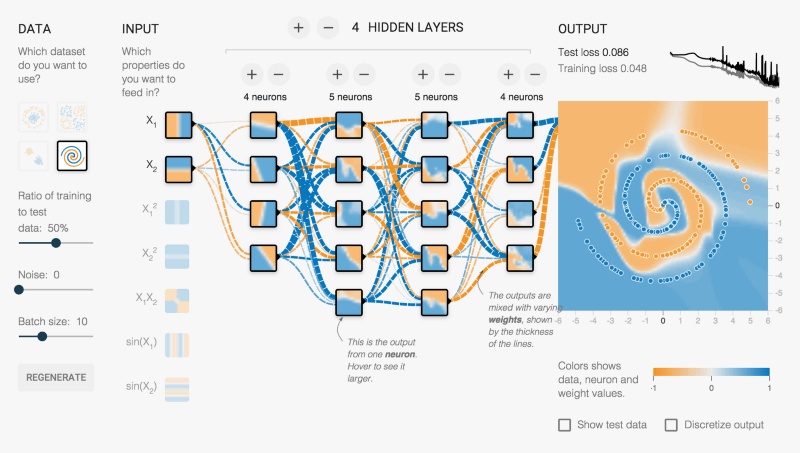
Pros:
- Use of an easy to learn a language like Python.
- Uses computational graph abstraction.
- Availability of TensorBoard for visualization.
Cons:
- It's slow, as Python is not the fastest of languages.
- Lack of many pre-trained models.
- Not completely open source.
Microsoft CNTK
"Open source deep-learning toolkit"
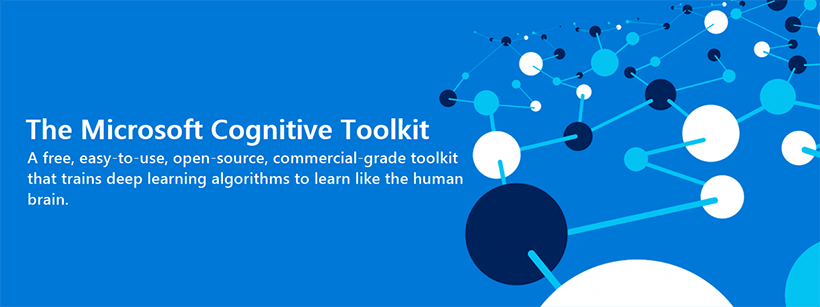 Language: C++
Language: C++
13 516 ★
Do we call this Microsoft's reply to Google's TensorFlow?
Microsoft's Computational Network ToolKit is a library that enhances the modularization and the maintenance of the separation of computation networks, providing learning algorithms and model descriptions.
CNTK can take advantage of many servers at the same time, in a case where lots of servers are needed for operations.
It is said to be close in functionality to Google's TensorFlow, however, it is a bit speedy than TensorFlow. Learn more here.
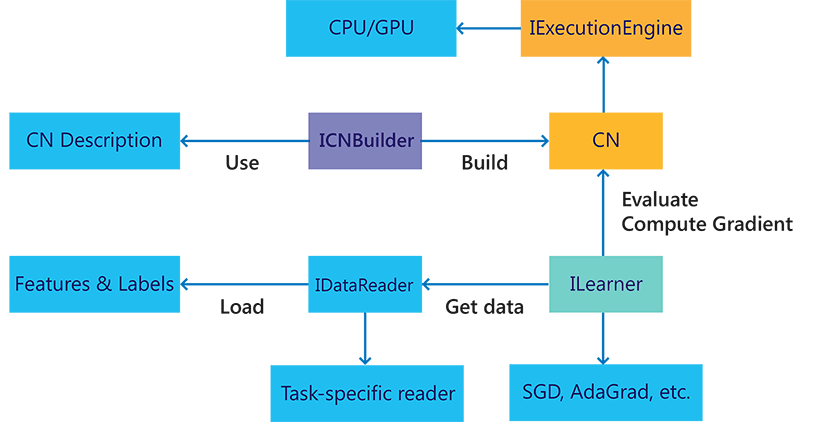
Pros:
- It is very flexible.
- Allows for distributed training.
- Supports C++, C#, Java, and Python.
Cons:
- It implemented in a new language, Network Description Language (NDL).
- Lack of visualizations.
Theano
"Numerical computation library"

Language: Python
7 550 ★
A strong competitor to TensorFlow, Theano is a powerful Python library that allows for numerical operations involving multi-dimensional arrays with a high level of efficiency.
The library's transparent use of a GPU for carrying out data-intensive computations instead of a CPU results in high efficiency in its operations.
For this reason, Theano has been used in powering large-scale computationally intensive operations for about a decade.
However, on 28 September 2017, it was announced that major developments of Theano would cease after the 1.0 release which has been released on 15 November 2017.
This doesn't mean it is less of a powerful library in any way. You would be able to carry out deep learning research with it any day any time. Learn more here.
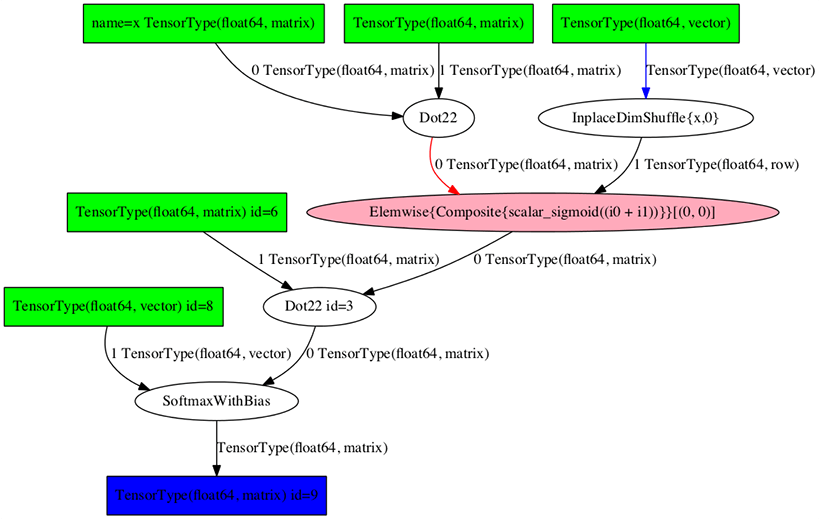
Pros:
- Properly optimized for CPU and GPU.
- Efficient for numerical tasks.
Cons:
- Raw Theano is somewhat low level when compared to other libraries.
- Needs to be used with other libraries to gain a high level of abstraction.
- A bit buggy on AWS.
Caffe
"Fast open framework for deep learning"
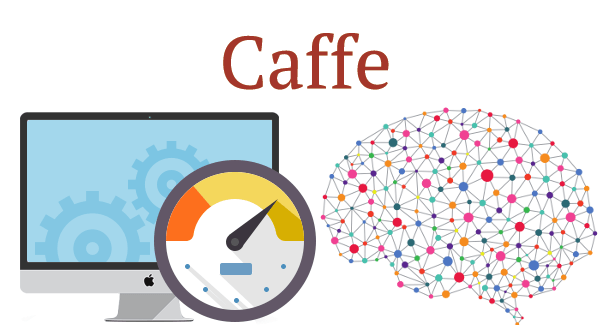
Language: C++
22 111 ★
Caffe is a powerful deep learning framework.
Like the other frameworks on this list, it is very fast and efficient for deep learning research.
With Caffe, you can very easily build a Convolutional Neural Network (CNN) which could then be used for image classification. Caffe works well on GPU, which contributes to its great speed during operations. Check out the main page.
Pros:
- Bindings for Python and MATLAB are available.
- Great performance.
- Allows for training of models without writing code.
Cons:
- Bad for recurrent networks.
- Not great with new architectures.
Keras
"Deep Learning for humans"
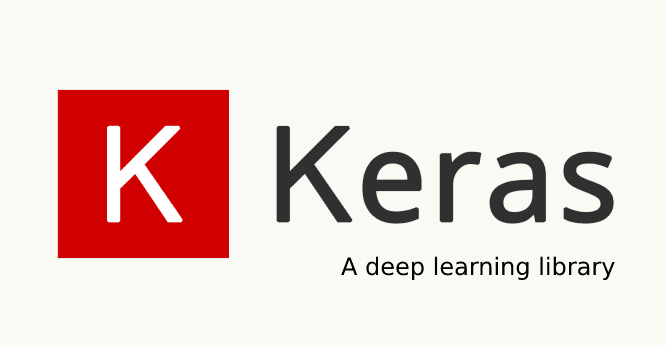
Language: Python
23 711 ★
Keras is an open source neural network library written in python.
Unlike the likes of TensorFlow, CNTK, Theano, Keras is not meant to be an end to end machine learning framework.
Instead, it serves as an interface and provides a high level of abstraction which makes for easy configuration of neural networks regardless the framework on which it is sitting on.
Google's TensorFlow currently supports Keras as a backend and Microsoft's CNTK is going to be doing same in little or no time. Learn more here.
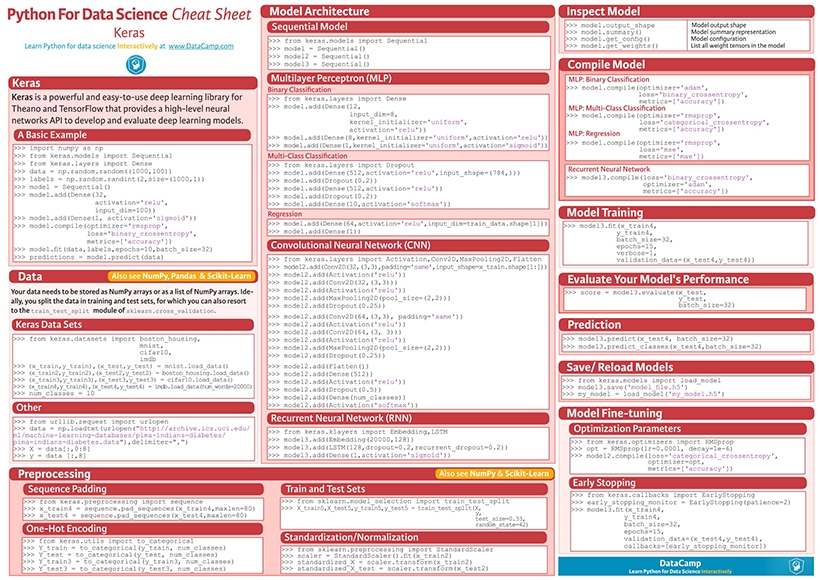
Pros:
- It is user-friendly
- It is easily extensible
- Runs seamlessly on both CPU and GPU.
- Works seamlessly with Theano and TensorFlow.
Cons:
- Can't be efficiently used as an independent framework.
Torch
"Open source machine learning library"
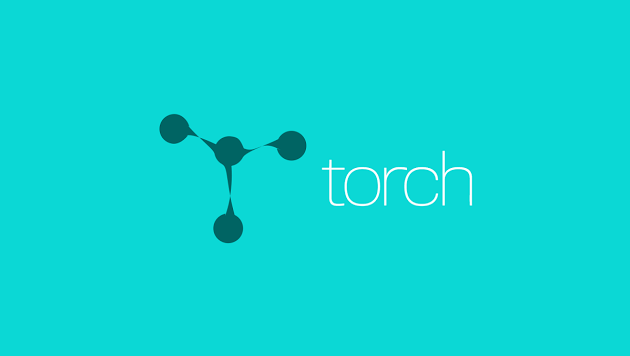
Language: C
7 584 ★
Torch is an open source machine learning library for scientific and numerical operations.
It's a library based on (no, not Python) the Lua programming language.
By providing a large number of algorithms, it makes for easier deep learning research and improved efficiency and speed. It has a powerful N-dimensional array which helps with operations such as slicing and indexing, it offers linear algebra routines and neural network models. Check it out.
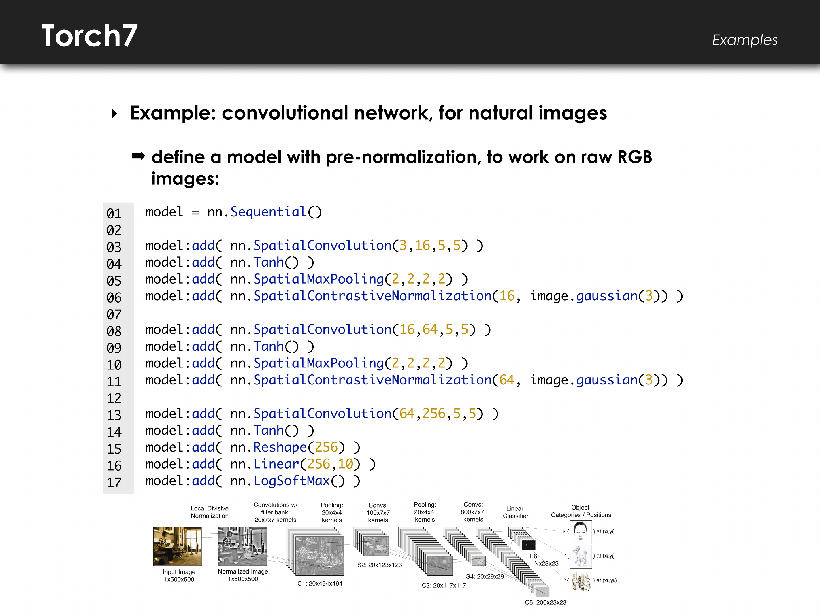
Pros:
- Very flexible.
- High level of speed and efficiency.
- Lots of pre-trained models available.
Cons:
- Not so clear documentation
- Lack of plug and play code for immediate use.
- It's based on a not so popular language Lua.
Accord.NET
"Machine learning, computer vision, statistics and general scientific computing for .NET"
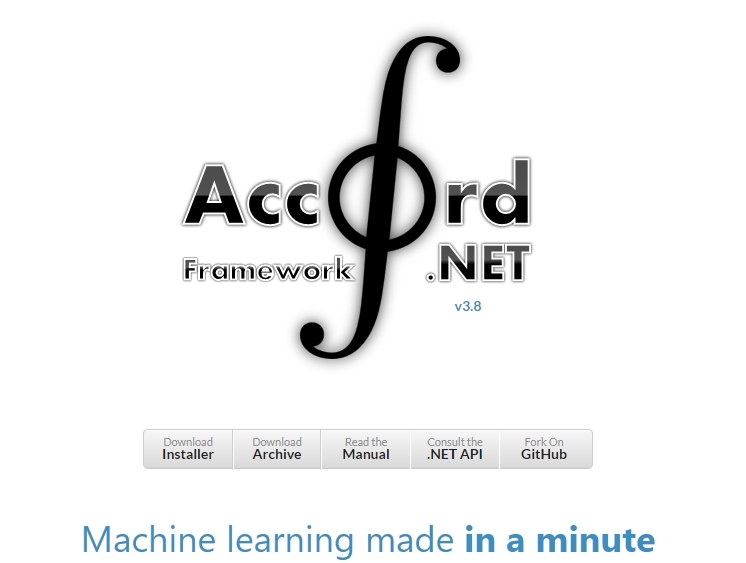
Language: C#
2 424 ★
Here is one for the C# programmers.
Accord.NET framework is a .NET machine learning framework that makes audio and image processing easy.
This framework can efficiently handle numerical optimization, artificial neural networks and even gives the feature of visualization. Asides this, Accord.NET is powerful for computer vision and signal processing and also makes for easy implementation of algorithms. Check the main page.
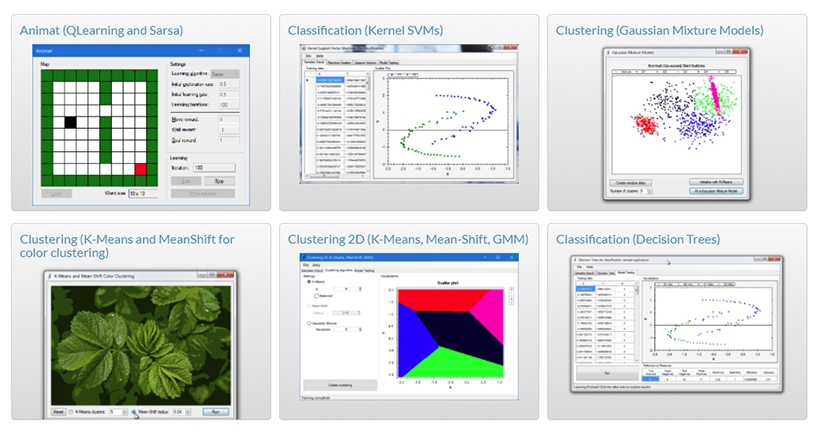
Pros:
- It has a large and active development team.
- Very well documented framework.
- Quality visualization.
Cons:
- Not a very popular framework.
- Slow when compared to TensorFlow.
Spark MLlib
"Scalable machine learning library"
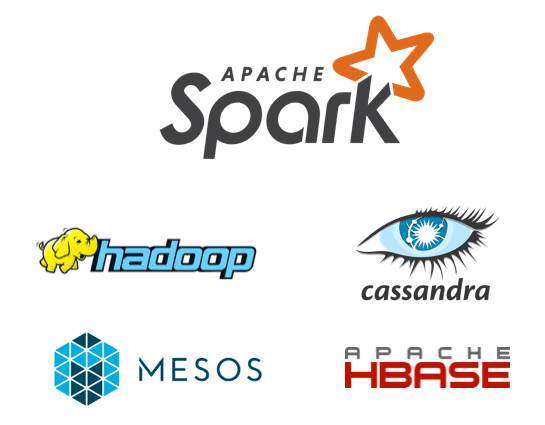
Language: Scala
15 708 ★
Apache's Spark MLlib is a very scalable machine learning library.
It is very usable in languages such as Java, Scala, Python and even R. It is very efficient as it interoperates with a library like Numpy in Python and R libraries.
MLlib can easily be plugged into Hadoop workflows. It provides machine learning algorithms such as classification, regression, clustering etc.
This powerful library is very fast when it comes to processing of large-scale data. Learn more on the website.

Pros:
- Very fast for large scale data.
- Available to many languages.
Cons:
- Steep learning curve.
- Plug and play available for Hadoop only.
Sci-Kit Learn
"Machine learning in Python"
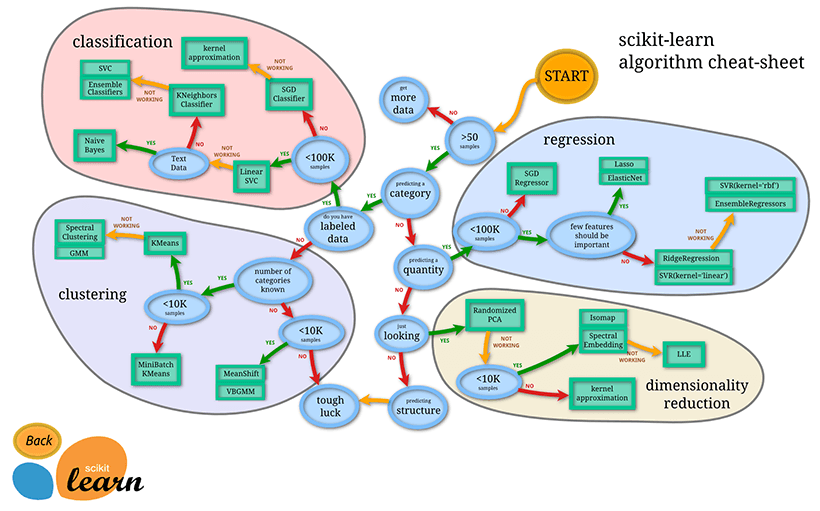 Language: Python
Language: Python
24 369 ★
Sci-kit learn is a very powerful python library for machine learning majorly used in building models.
Built using other libraries such as Numpy, SciPy, and Matplotlib it is very efficient for statistical modeling techniques such as classification, regression, clustering etc.
Sci-Kit learn comes with features such as supervised learning algorithms, unsupervised learning algorithms, and cross-validation. Check it out.
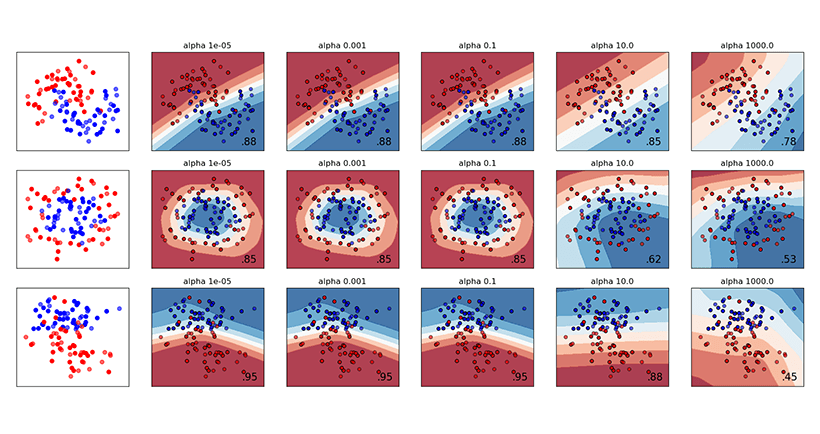
Pros:
- Availability of many of the shell algorithms
- Efficient for data mining
Cons:
- Not the best for building models.
- Not very efficient with GPU.
MLPack
"Scalable C++ machine learning library"

Language: C++
1 856 ★
MLPack is a scalable machine learning library implemented in C++. For it to be in C++, you can guess it would be great at memory management.
MLPack is working with great speed, as quality machine learning algorithms come along with the library. This library is novice-friendly, as it provides a simple API for use. Check it out.

Pros:
- Very scalable.
- Available Python and C++ bindings.
Cons:
- Not the best of documentation.
Wrapping it up
The libraries discussed in this article are very efficient and have proven over time to be of high quality. The big five companies Facebook, Google, Yahoo, Apple, Microsoft make use of some of these libraries for their deep learning and Machine learning projects.
So why shouldn‘t you?
Can you think of any other library that you make use of very often and isn‘t on this list? Kindly share with us in the comments section.
